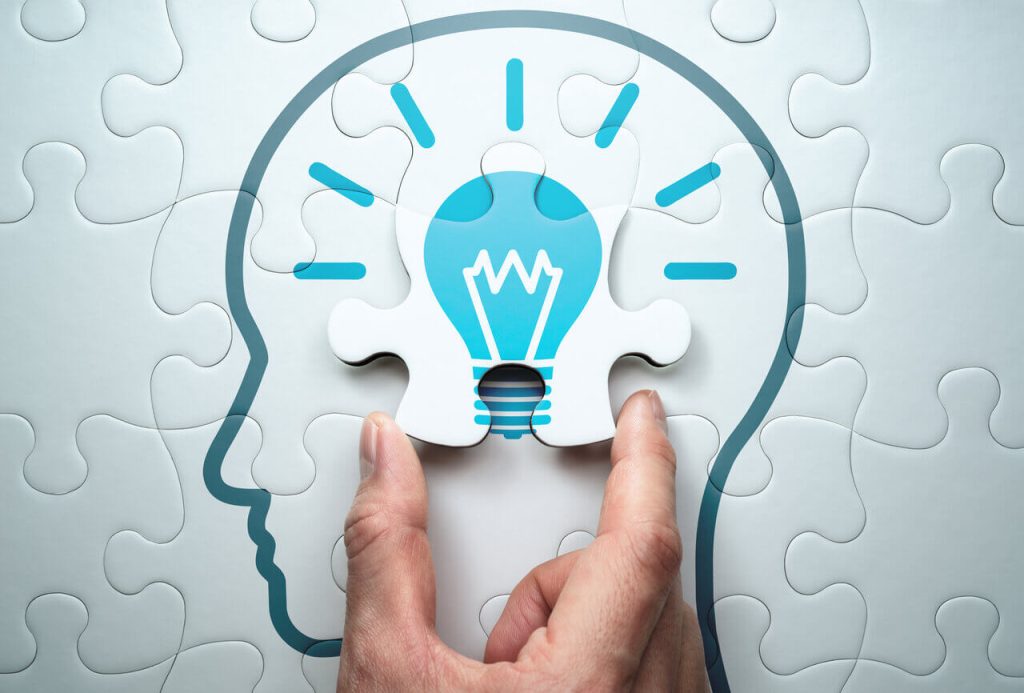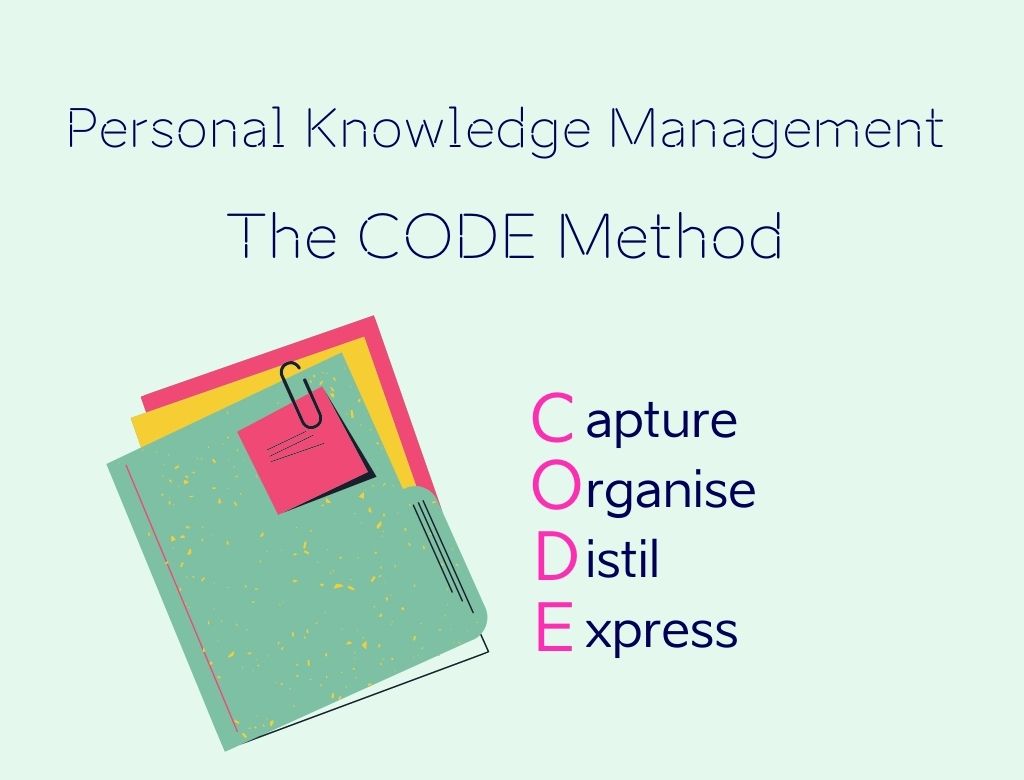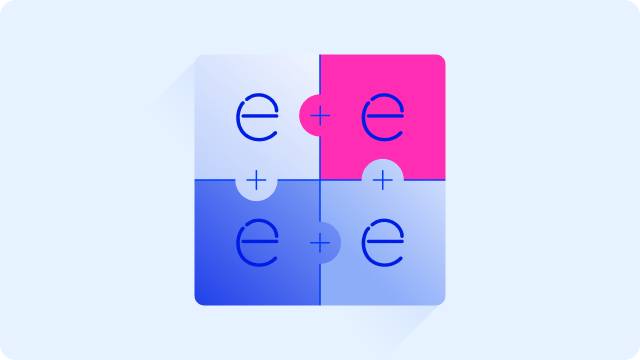personal knowledge management for e-residents
How to leverage personal knowledge and use digital tools to develop your own portable e-brain, increase productivity and allow your creativity to flourish

As location-independent professionals, e-resident entrepreneurs need effective solutions for managing long-term information storage and project management. The tools we choose to collect, organise, synthesise and express our ideas have always mattered. But the way we use them is even more important to understand and make part of your knowledge-work daily routines and habits. This is where a personal knowledge management (PKM) system comes in. It can help us better observe the world around us and make connections for use in work and life.
LEONARDO DA VINCI"Learn how to see. Realize that everything connects to everything else."
In our interconnected world, we are fortunate to live in an epoch when we have so many device- and platform-agnostic tools and apps to help us. We can only wonder what ancient thinkers, such as Da Vinci with his notebooks, would have made of the potential of Notion or Roam Research, to organise and express his thoughts. So let's dive in to find out how to leverage the power of our own brains and external digital tools to help us be more productive and creative.
What is a personal knowledge management (PKM) system?
A personal knowledge management (PKM) system is a tool that helps you collect, organise, and access your personal knowledge. This includes articles you've read, websites you visit often, podcasts you've listened to, or anything else you want to remember for later.
How to be more productive
Way back in the first edition of the iconic productivity guide Getting Things Done in 2001, David Allen pointed out that your brain is a great place for having ideas—but not for holding on to them. This created particular challenges for the emerging cohort of knowledge-based workers, whose roles and responsibilities rarely had hard edges and definitions.
His proposed solution involved a series of lists and folders, to get the crucial items out of your head into a permanent trusted storage system. Even in pre-digital days this was good advice. For non-actionable information—anything not related to an action or a project—he recommended filing in an alphabetised suspension system of folders, for easy retrieval.
Two decades is a lifetime in terms of how we live and work, and also a long time of being a productivity nerd. (Hands up, who else bought a dedicated label printer for their folder system?)
Tools to stay organised in 2023
For the average e-resident entrepreneur today, your solutions for both long-term information storage and managing your projects are far more likely to be digital and also cloud-based tools. If we’re going to be location-independent, our external brains need to offer the same! No digital nomad solopreneur is going to travel with a tickler folder and a big metal cabinet in their hand luggage.
In fact, it’s hard to imagine any functioning professional or other human being today getting by without some kind of app-based solution to the basic to-do list. There are free ones bundled into every smartphone. They’re an add-on for each calendar app, and an intrinsic part of our business collaboration tools.
More sophisticated premium offerings offer project management, team access, rich tagging and prioritisation, templates, and even location-based reminder triggers. So you really can get a nudge about those batteries, when you pass them in the hardware store (provided you set that location trigger up correctly in the first place.)
So that’s the projects and to-dos sorted, but what about the non-actionable information?
Organising your knowledge
Organising your day as a solopreneur is one thing. But organising your knowledge and ideas is a totally different thing.
Ask yourself: How do you record and remember interesting, important and illuminating ideas you come across? How do you retrieve these ideas at will? Do you have a way to quickly recall and connect your ideas to creative tasks or ideas you’re presently thinking about or working on?
This is where you need a way to sort your actionable items from those that aid in knowledge, learning and creativity.
Enter the personal knowledge management (PKM) system
For knowledge work solopreneurs in the information age, what we know, think and remember is our most prized asset. It’s what makes us unique, as a product of our individual experiences and thoughts and knowledge. Plus, our ability to retrieve and synthesise this knowledge in a meaningful way is increasingly vital to all creativity.
Again this is not new, and capturing and systematising these learnings has extensive precedent. Many great minds in history have passed on their wisdom to future generations not just in their final celebrated discoveries, but in their methodologies, which include detailed reflective note-taking.
Over 7000 pages of Da Vinci’s notes and sketches survive to the present day, and provide vital insight into the thought processes of an iconic genius. 20th century German sociologist Niklas Luhmann created the Zettelkasten method of filing individual notes on index cards in a slip-box according to multiple dimensioned connections and associations.
Using digital tools to build your own 'e-brain'
Da Vinci and Luhmann arguably foreshadowed what would only become possible in the digital age. Now, we have the luxury of connecting our thoughts and ideas via infinitely complex systems of folders, tags, and hyperlinks.
Today every smartphone even has basic note-taking apps natively embedded. Most have the ability to capture not just text but also images, voice notes, handwriting, and other in-the-moment reflections. Many can even connect and relate these fragments to one another in endless ways.
In 2022, Tiago Forte published Building A Second Brain. BASB and the accompanying educational products encourage every creative person to cultivate a digital database of notes and connections as a ‘second brain’. Every entrepreneur and knowledge worker can use his method to summarise and annotate third-party links and creations.
Using Forte's CODE model, find the best digital setup for your own personal knowledge management system. Start with the notes app on your phone if that’s what is most handy. Or scan and OCR process your handwritten event scribbles. For storing and organising, choose an app which ticks a few boxes. It should be ubiquitous across the devices you use, persistent, and ideally cloud-based.

The CODE personal knowledge management system
Forte’s method is not just about collecting things, though, because what’s the point of that? We’re not creating a digital museum! He posits four stages to his model, conceptualised as CODE (Capture, Organise, Distil, Express).
1. Capture your thoughts
Be guided by your instincts, Forte advises, and pay attention to the synergies that occur to you. Hang on to ideas or thoughts you could not easily find again using Google. As they are your own ideas, connections or relations, you need your own private system, so you can actually find it and make use of it at the right moment. As Allen once put it, it’s not information overload that’s the problem. It’s how you organise and retrieve that information that matters.
Forte classifies note-takers according to style and preference of organising information and recommends apps to suit them accordingly. For example ‘architects’ like hierarchies and structure. Whereas ‘gardeners’ are more free-form and open to see what connections spring up.
You can switch it up too, of course, and migrate data from one tool to another—pruning and archiving as you go. Just like when any digital nomad packs up and changes location, it’s a chance to shed that which no longer serves you.
2. Organise your second brain
This looks different for each of us, and can be the missing link in the productivity literature. It doesn’t matter how many notes you have in your database system, or cards in your Zettelkasten slipbox. In order to use and connect them to new products or creations, carefully consider how they're organised. Simply stuffing the box with ideas and shaking it enough is unlikely to work. Aim for a system that works for your and results in that ready-to-publish article or that helps you achieve product-market fit.
Here are some tips that work for different personal knowledge management systems:
- Organising by project (time-limited goal-oriented group of tasks) or life area (ongoing themes like ‘well-being’ or ‘family’). Forte suggests a universal ‘PARA’ matrix. PARA stands for Projects, Areas, Resources (things which don’t fit the other two categories) and Archive (no longer in use).
- Organising by hierarchies and logic trees. For example, start with big divides like ‘life’ and ‘work’, then progressively get more granular.
- Using tags to create connections and hyperlinks between themes.
- Chucking everything into one huge bucket, then relying on search tools (increasingly including artificial intelligence) to retrieve whatever you need when you need it.
3. Distilling the essence: refining your thoughts for future use
He encourages not just the collection and classification of notes, but active engagement with them. This could involve summarising and refining, reflecting and expanding. It could also involve pruning that collection as things go out-of-date or become surpassed. This stage is probably something the analogue slip box wranglers were more disciplined about, unspoiled by the luxury of effectively infinite digital storage.
When it comes to distilling learning to keep, Forte suggests a system of progressive summary-making. Use bold highlights and tag keywords.
Lately, one valuable hack I have been implementing is the use of ChatGPT. I use it to summarise the key learning points of anything particularly complex or abstruse. For example, recently I wanted to record an academic paper related to something I was thinking of writing about. I added a field to my Notion main library database and dropped in an executive summary made by ChatGPT. This means I now have a quick reminder of why I saved the article and can easily search for it in the future.
4. Expressing something new, to offer to the world.
Ultimately the whole point of gathering ideas is to be able to use it to create something new. The CODE model offers a way to organise your thoughts, then at the right stage support your unique take on a situation, challenge, or brief.
And this is the crux of it. While learning and thinking and reflecting is great, most of us need our big ideas to earn their keep. What sets us apart as knowledge-based workers, is the art of using those inputs to deliver value to the world.
My digital brain: always a work in progress
I find it helpful to visualise my entire digital brain as a series of notes to my future self. We cannot time travel, but we can anticipate what might be helpful to our future selves, respectfully and considerately, and try to offer up information which they can put to use.
I have used Evernote for over a decade, as my earliest project notebooks will attest. More recently, I have moved to Notion. Notion self-describes as "a home for knowledge, tasks, notes, and aspirations". My setup certainly evidences this claim!
My (ever evolving) setup and attempt to be organised presently looks like this:
- Apple notes for dictation on the run and transient thoughts
- A big Notion database for everything life and work. This also involves using a universal tags database to connect a diverse source of inputs. These range from web clips and event notes to interview transcripts and random thoughts.
- Web clippers and the iOS share-sheet to get stuff into Notion as I go
- Todoist for actual action items, because Notion just doesn't do what I want in this respect (yet)
- The wonderful Readwise extension for kindle book notes and highlights (syncs with Notion)
- I use tags in more creative ways, including by location. This is particularly useful for those who travel around a lot, like many e-residents of Estonia.
I am still searching for an efficient way of capturing the many inspiring ideas I get from audiobooks and podcasts, beyond stopping the playback and dictating into an Apple note. (Startup idea anyone?)
Personal knowledge management helps us be more human
Very soon you will start to see the synergies and connections which can form between your notes and memories. It's truly this I believe to be the most important outcome for all creative entrepreneurs.
One reason for this, is that all of the books I have referenced above were written before the recent explosion of consumer accessible AI content generation tools. These tools and their future iterations will likely become even better at mirroring human communication patterns and anticipated interactions.
Yet, the blend of memories, cultural influences, patterns of reasoning, intuitions, and interpolations, will remain truly ours. Human sparks of original creativity and our ability to synthesise truly original thoughts and ideas from our uniquely human experiences will continue to be our currency.
E-resident solopreneurs and founders have always been digital pioneers and thought leaders. We have been early movers in leveraging advanced technological tools to create business opportunities for ourselves. Furthermore, being a part of e-Residency's transnational community has enabled us to become experts at navigating location-independent collaboration and connection. It's thus a natural next step for us to be trailblazers at hacking the boundaries between our own minds, our software applications, and the rapidly changing world of life and work.
Personal knowledge management is a crucial frontier for the business of creation, knowledge and ideas. And e-residents will be the pioneers here as everywhere else.
Become a digital pioneer
More from e-Residency
- Sign up for our newsletter
- Watch fresh video content - subscribe to our Youtube channel
- Meet our team and e-residents - register for our next Live Q&A
